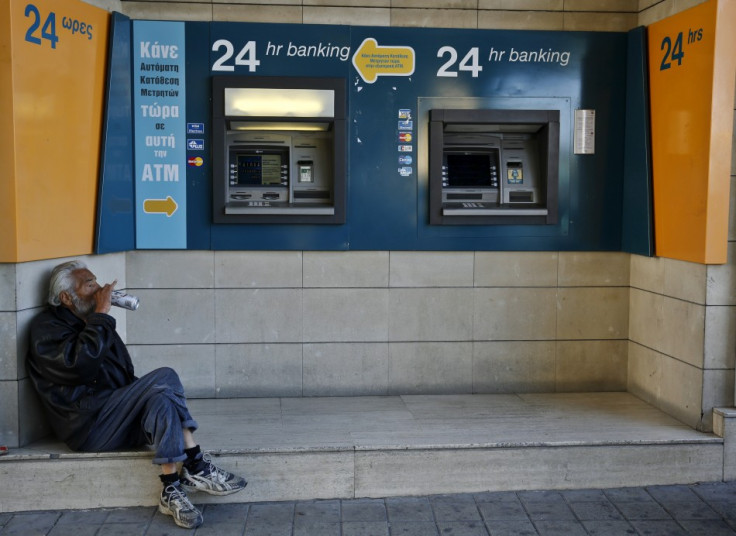Harsh Capital Controls Push Cyprus Deeper into Recession

Recession-hit Cyprus's economy contracted further in the second quarter of 2013, as draconian capital controls imposed by the state on the island's banks hit economic activity.
Preliminary government data showed that Cyprus's economy contracted by 1.4% on a quarterly basis in the three months to June. However, the April to June reading was better than the first quarter's 1.7% contraction, the Cyprus Statistical Service (Cystat) said.
On an annual basis, the island's economy has contracted 5.4% in the second quarter, from a downwardly revised 4.8% in the first three months of 2013.
Previous estimates had pegged the economic contraction in the first quarter at 1.4% on a quarterly basis, and 4.4% on an annual basis.
"Negative growth rates were recorded by the secondary sector of the economy (construction and manufacturing), as well as in the sectors of tourism, banking, trade, transport and other services," Cystat said.
In March, Cyprus clinched a last-minute bailout deal with its international lenders to avert a potential exit from the eurozone and the collapse of its banking system.
The government shut down all banks for about two weeks and imposed severe capital controls when they were reopened. All bank transfers are thoroughly checked now and cash withdrawals by individuals have been capped at €300 a day.
The €10bn ($13.2bn , £8.5bn) rescue package should help the island nation return to growth in 2015. Cyprus's troika of international lenders - the EU, ECB and IMF - have forecast that the island's economy will contract by 8.7% in 2013 and 3.9% in 2014.
Under the bailout deal, approved after days of political wrangling in the Cypriot parliament which nearly resulted in the state's exit from the eurozone, Cyprus had to quickly raise €5.8bn. It had originally planned to do this by haircutting all bank deposits in the country.
Public outcry at the potential loss to ordinary people's deposits caused lawmakers to instead find the cash by shutting down Popular Bank - commonly known as Laiki and the country's second largest financial institution - and handing over some of its assets to Bank of Cyprus, as well as its emergency liquidity assistance (ELA) liability.
They then converted portions of the largest Bank of Cyprus deposits into equity to recapitalise it in a "bail-in".
© Copyright IBTimes 2025. All rights reserved.






















